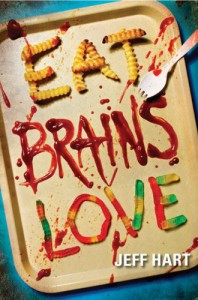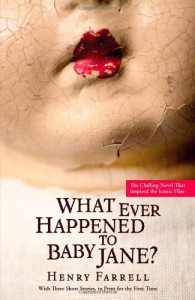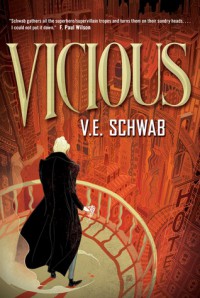Currently reading
The Best American Nonrequired Reading 2013
Minders
Sekret
All the Truth That's in Me
Code Name Verity
Grave Mercy
Hostage Three
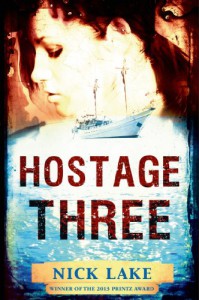 This review and others are posted at Inspiring Insomnia.
This review and others are posted at Inspiring Insomnia.Hostage Three is one of Publisher Weekly’s best Children’s/YA books of 2013, and I get it. Along with the other books on the list that I’ve read (Forgive Me, Leonard Peacock, Rose Under Fire, and Reality Boy), it’s IMPORTANT and it has THINGS TO SAY.
Amy’s father is rich. Rich, as in, “Hey, let’s take my beautiful yacht and go sail around the world” rich. Spoiled, sullen, surly Amy is reluctantly dragged along. She hates everything, especially her stepmother who stepped into the family way too soon after Amy’s mother’s death. Amy’s only source of happiness is one of the cute Somali pirates who captures the yacht at gunpoint and terrorizes everyone on board. Say what?
Farouz, the cute pirate gives Amy (and us) a history of Somali piracy. The author tries hard to paint the pirates in a sympathetic light: They’re not actually pirates, they’re members of the Somali “Coast Guard” – they guard the coast, get it? They never intend to actually kill the people they kidnap, so don’t pay attention to those big, scary weapons pointed in your direction. And really, if you’re unlucky enough to find yourself a captive of Somalis, just pay the $5 million ransom so you can all go on your merry way. It was a nice try, but I don’t know what Lake could have written to persuade me that people who kidnap and rob and terrorize and murder are worthy of sympathy. And yes, that includes the swoon-worthy Farouz who justifies his actions by claiming it’s the only way to raise the money to get his brother out of prison. Farouz tells Amy he won’t hurt her or family, but he seems to forget that the rest of his gang don’t have the same reservations, particularly the one who makes it clear he intends to sexually assault Amy. Farouz can use his imprisoned bother in an attempt to claim to the moral high ground, but he chose to go into the piracy business with these murderous people.
Readers who have a hard time swallowing insta-love scenarios will have a lot to rage about here. Amy doesn’t seem to fully grasp the danger of her predicament, as she’s more concerned with sneaking around the yacht to kiss and cuddle with Farouz. When her father finds out what’s going on, he’s not happy. Do you blame him? But Amy accuses her father of racism because he’s not delighted over the prospect of his daughter being in love with the guy who could murder them all at any moment. I suspect that is Dad’s bigger concern.
Aside from Amy’s ridiculously hard to believe romance with Farouz, the book focuses on Amy’s attempt to come to terms with the death of her mother. This part of the story was quite moving, and it was a shame that it was overshadowed by Farouz. I wish the author would have torpedoed the romance; he could still have painted the pirates in a positive, sympathetic light without, and my eyes wouldn’t have to hurt from rolling around in my head so much.
Incidentally, earlier this year, I read a memoir called Impossible Odds by an American woman who was kidnapped and held captive for three months while doing aid work in Somalia. She was eventually rescued by Seal Team Six, and her awful, harrowing story is likely much more representative of the actual Somali kidnap-ee experience. (Hint – there was no romance.)
Cartwheel: A Novel
 This review and others are posted at Inspiring Insomnia.
This review and others are posted at Inspiring Insomnia.Do you know who Amanda Knox is? Your answer to that question may impact how you approach this book. I probably know more than a lot of people about the real-life murder case involving Knox, simply because I have a cousin who is very, very interested in the case, and I've spoken to her many times about it. If you don't know, Knox was an American college student convicted of murdering her roommate while the two were studying abroad in Italy. Knox and another defendant spent several years in prison before the conviction was overturned. The opening of Cartwheel states that "the themes of this book were loosely inspired by the story of Amanda Knox," but "this is entirely a work of fiction." If you know nothing or little about the actual case, you'll likely be captivated by this story. If your knowledge runs deeper, you may have a difficult time losing yourself in the story. So many times, something happened in Cartwheel that made me think, "That's straight from the Knox case." In fact, the title of the book refers to a cartwheel that the fictional Lily does while in police custody shortly after her roommate's murder. The real Knox did a split.
While I know a good bit about Knox, I have no opinion on her guilt or innocence, and I was hoping that Cartwheel would not be a jazzed-up opinion piece designed to push the reader's opinion in one way or the other. Happily, it was not. Cartwheel features Lily, an American student who travels to Buenos Aires to study. She rooms in a couple's house with Katy, a beautiful American student. We don't get to know much about Katy, aside from the fact that she was brutally murdered. (This, sadly, is also mirrored by the Knox case.) The little that we do know about Katy is gleaned from Lily, who views her with varying degrees of disinterest and disdain. Katy, while living, was such a peripheral character, and I have to admit I wasn't moved much by her murder. The focus was instead on the sensationalism surrounding the case and on those who were caught up in it.
The story is told from multiple perspectives, including that of Lily's father, Andrew. Andrew is divorced from Lily's mother, and both parents insist on their unwavering belief in their daughter's innocence. I don't know how much of their conviction was due to parental love, because there is some strong evidence to indicate Lily's guilt, and her behavior is viewed by many as suspicious. Lily's make enormous sacrifices to travel every other week from the U.S. to Argentina to visit her in jail. Their youngest daughter, who had already felt that she lived in the shadow of Lily, is pushed further aside.
Eduardo, the prosecutor, also shares some narration time. He seems like a kind, decent man, but it's also clear that he operates based on his intuitions, rather than on actual facts. This seems like a very dangerous approach for a prosecutor to take, but when Eduardo shares the basis for his beliefs, it's hard not to agree with him.
The oddest character is Sebastien, Lily's neighbor and boyfriend of a few weeks. He's swept up in the case when it becomes known that Lily spent at least part of the night with him when Katy was murdered, and Lily ran to his house after finding Katy's body the next morning. There's a bizarre scene between Eduardo and Sebastien as Eduardo attempts to elicit information on Lily's actions. Sebastien has very strange speech and mannerisms, and it seems that he wants to go toe-to-toe with this skilled prosecutor, but his efforts aren't very successful.
Cartwheel isn't an Agatha Christie type of whodunit, and there aren't any clear answers here. It's more about the impact of the murder on several of those involved. Jennifer duBois does a great job of getting inside their heads and showing us their unique perspectives without attempting to force us in a particular direction.
I always read the acknowledgments and author's note, and in this case, I think the author's note is especially important. I only wish that it had been included at the beginning, because I would have had a better understanding of the author's intention of writing a novel that so closely mirrored facts from an actual case.
Engines of the Broken World
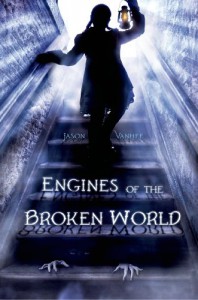 This was an odd little story that just never grabbed me. I kept waiting for it to progress beyond the death of the main characters' mother, but it felt stuck. There was an atmosphere of creepiness, but not enough to keep me interested. After reading about 40%, I skimmed through the remainder of the book, looking for a reason to get invested in the story. Unfortunately, I never found it.
This was an odd little story that just never grabbed me. I kept waiting for it to progress beyond the death of the main characters' mother, but it felt stuck. There was an atmosphere of creepiness, but not enough to keep me interested. After reading about 40%, I skimmed through the remainder of the book, looking for a reason to get invested in the story. Unfortunately, I never found it.
Six Months Later
 This review and others are posted at Inspiring Insomnia.
This review and others are posted at Inspiring Insomnia.Before you decide to read Six Months Later, you should ask yourself this question: Are you OK reading a mystery that is not mysterious whatsoever? I'm not particularly adept at guessing endings, but in this case, I figured out the big secret very early on. As I continued reading , it became increasingly evident that I was correct. I was still prepared to enjoy myself, but everything here fell apart as the ending neared, and the story grew increasingly sillier.
What makes this so disappointing is that Six Months Later started off very strongly. Chloe falls asleep at her desk one summer day, and when she wakes up, she's still at her desk, but there is snow on the ground. No one else is in the room. Strangest of all, her fingernails are dirty, and her clothes are different. What happened??? Sounds like a great start, right?
But after the opening, everything starts to go off the rails. Chloe soon realizes that six months of her life disappeared, and she's understandably terrified. But for reasons I still don't understand, she keeps her memory loss a secret for a long time. She plays dumb to her parents and those around her, even as she realizes her life completely changed during that period. She somehow became a genius, she's dating, Blake, the hottest guy in school who barely knew she existed before, and she's suddenly popular.
Her confusion leads her to overlook what is blindingly obvious to us: There's something VERY off about Blake. He sends her strange, menacing texts. He follows her around and pops up in odd places. And he seems to have some ulterior motives for dating Chloe.
This story wouldn't be complete without a love triangle, so let's throw in another hot guy, Adam, who's clearly into Chloe, unlike Blake, the supposed boyfriend. He's supposed to be a "bad boy," but you'll laugh when you learn about the crime that got him in trouble. On the surface, Adam's crime was robbing a pharmacy, but with the way the story was headed, I knew we'd be given a suitable and sympathetic explanation for the crime. I did not, however, expect that he'd be painted as some kind of Robin Hood/Boy Scout hybrid.
The author's attempt to paint Adam as a Prince Charming isn't entirely successful. He knows Chloe lost her memory, but he becomes irrationally angry when Chloe is informed of his little pharmacy shenanigans. He believes that she should have somehow deduced the heroic reason for his crime, even though she barely knows him. (Keep in mind: Chloe got to know Adam during her "missing" six months, so to the present-day Chloe, he is basically a stranger.)
At Six Months Later nears its end, Chloe is in serious danger, and she hems and haws while other characters insist that she call the cops. Even I was thinking, "Call the cops, dummy!" But because it wasn't convenient to the plot, she doesn't listen. Again, more predictability ensues with the unveiling of the Big Bad who nicely delivers the standard explanation for all of the preceding dastardly deeds.
Note - I received an ARC from the publisher in exchange for an honest review.
Witchstruck (The Tudor Witch Trilogy)
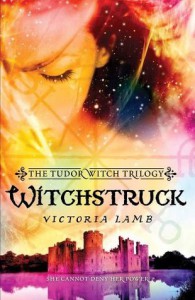 This review and others are posted at Inspiring Insomnia.
This review and others are posted at Inspiring Insomnia.3.5 stars
My knowledge of the Tudor period primarily comes from the Showtime series, The Tudors, the wonderful film, Elizabeth, starring Cate Blanchett, and the occasional historical fiction novel. In other words, my knowledge is not exactly extensive, and I approached Witchstruck with the desire to be entertained and without any thought of wanting to nitpick for accuracy. Obviously, since Lamb decided to feature a witch living alongside the future Queen Elizabeth, we know that this is not intended to be a biography. Lamb's attempt to make this an entertaining work of historical fiction set in the Tudor period was a very nice success. (I apologize in advance if I misinterpret any actual events. I will place all blame on Cate Blanchett.)
Here are the bits that I know to be accurate that Lamb included in the story. Queen Mary and Princess Elizabeth are half-sisters and daughters of the deceased King Henry VIII. Mary's mother was the King's first wife, Catherine of Aragon. Henry divorced Catherine to marry Elizabeth's mother, Anne Boleyn, and I think we all know how that ended. Queen Mary was a devout Catholic and Elizabeth was a Protestant, reflecting the religious divide in the country at the time. Mary believed that Elizabeth would lead a rebellion against her, and she imprisoned Elizabeth for a time to protect her reign.
Where Lamb begins to take liberties with history is with the young witch, Meg Lytton, a maid to Elizabeth. Meg is still attempting to learn the extent of her powers. However, she must keep her powers hidden because being exposed as a witch will lead to her hanging or possibly an even more gruesome death. Elizabeth is aware of Meg's powers and approaches the situation pragmatically. She's happy for Meg to use powers that will benefit her, but she does not want Meg to do anything that will prevent her (Elizabeth) from taking the throne from Mary.
A heavy focus of the story is on a man named Marcus Dent. I'll go ahead and call him a monster, because he does not possess a single redeeming quality. He's a witch-finder, which is explanation enough, but he also happily tortures them to death with no evidence. This charmer also has his eyes set on Meg. This whole plot line was the weakest of the story, and I think the book could have improved without it. I understand the need to show the persecution of suspected witches, but one scene where Dent attempted to rape Meg at the same time he insists he's going to marry her was so distasteful, and it didn't add much to the story.
Much better were the political maneuverings in which Meg aided Elizabeth. This fictional Elizabeth could be bossy and petulant and not exactly regal, but at times, we saw glimpses of the self-assured woman who would become one of England's longest-reigning monarchs. There were interesting parallels between the fictional Lytton family and the actual Boelyn family. In some films and novels, Anne's family is portrayed as a group of schemers, using Anne to gain Henry's favor. While successful for a time, Henry eventually destroyed Anne and her family. In Witchstruck, Meg's family behaves with a similar lack of regard for Meg, seeming to view her only as a tool to advance their family's desires.
I'm looking forward to the additional books in this series, which will hopefully show Meg by Elizabeth's side as she takes the throne.
Note: An ARC was provided by the publisher in exchange for an honest review.
Two Boys Kissing
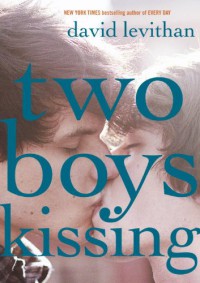 This review and others are posted at Inspiring Insomnia.
This review and others are posted at Inspiring Insomnia.Maybe I was expecting too much from Two Boys Kissing. I specifically chose to read this during Banned Books Week, even though I have not heard news (yet) of Two Boys Kissing being banned. But Levithan has had books challenged or banned in the past, and I assume that with this cover and title, the censorship police will soon be out in full force. Based on my experience with Leivthan's wonderful Every Day, I expected to come here raving about the beauty of Two Boys Kissing. I expected this to be a book that had the potential to change how people view sexuality. Instead, what I got was a srtory with a tone that seemed to scream, "THIS IS AN IMPORTANT BOOK," without the goods to back it up.
The novel switches focus between several gay teens: some out, some not, some in relationships, some not. I think the intention was to demonstrate the unique struggles each face, depending on the differing circumstances, but the result was that the individual stories were watered down. The one exception to this was Cooper, who inadvertently outed himself to his parents and was met with rage and disgust. But his story only stood out because the people around were so awful that it was impossible to ignore.
As mentioned in the synopsis, the story is narrated by a "Greek chorus" of gay men who died in the early days of AIDS. In those not-too-long ago days, not only was AIDS a virtual death sentence, but being outed as gay had its own dangers. Things have obviously improved dramatically since then, but there is still a long way to go. The Greek chorus highlighted the changes over the past few decades and expressed many emotions directed at the main characters, but the lack of subtlety left me unmoved. Perhaps this will resonate more with younger readers who don't remember the bad ol' days, but I felt the technique was overwrought and somewhat manipulative.
Earlier this year, two movies I hadn't seen in a long time aired on TV. One was In & Out, starring Kevin Kline and released in 1997, and the other was The Birdcage, starring Robin Williams, Nathan Lane, and Gene Hackman, released in 1996. Both are comedies and both feature gay characters portrayed in comedic, goofball settings. I saw both of them at the time they were released, and while it was too long ago to remember my specific reactions, I certainly don't recall being offended, and I'm sure I laughed right along with it. (Haha! Look at the funny, flamboyant gay men!) But when I saw them both again recently, I was struck by a couple of things: 1) I don't think these movies could or would or should be made today, and 2) I don't remember when being gay automatically made someone a subject of widespread ridicule and derision, although these films certainly indicated this was the case. Yes, these were both comedies, and certainly there was exaggeration for the sake of humor, but I'm also sure that they at least somewhat realistically portrayed society's response to homosexuality at the time. The effect on me of watching these two films again was much more powerful than anything I felt while reading Two Boys Kissing.
Crash into You
 This review and others are posted at Inspiring Insomnia.
This review and others are posted at Inspiring Insomnia.2.5 stars
Even though my rating for Crash Into You isn't great, and even though it's my least favorite of the Pushing the Limits series, I would still recommend it to fans of NA-ish contemporary romance. I, however, have grown tired of the glut of controlling and sometimes violent behavior exhibited by the male characters in this genre. To be clear, Crash Into You doesn't come close to glorifying this behavior as books like Hopeless and Ten Tiny Breaths do. But still, I was turned off by the overt possessiveness that Isaiah felt towards Rachel immediately after meeting her and throughout the story. There was a lot of fist clenching going on here, as well as barely restrained urges to fight whenever Isaiah gets a hint that Rachel is paying attention to someone else, even when she is merely being polite. None of this is helped by the fact that Rachel is portrayed in an overly juvenile way, with lots of peeking out from under her hair, staring at the ground, biting of her lip, numerous mentions of how "tiny" she is, etc.
Much of this book, following the initial googly-eyed meeting of Isaiah and Rachel, had a version of the following dialogue:
Isaiah: "You're too good for me."
Rachel: "I'm too inexperienced for you."
Both: "I love you."
Isaiah: "I'm going to hurt you."
Rachel: "Only I can fix you."
Isaiah: "I must protect you."
I kept waiting for a big, dumb misunderstanding that some authors rely on to create drama, but we are thankfully spared that. It's almost as though the author took the worst aspects of New Adult and dialed them way back. But not all the way, unfortunately. We've got the requisite damaged characters, although they don't come close to the level of messed-up-ness as the horrible characters in the books I mentioned above. Isaiah is a foster kid who's had some rotten breaks throughout his life, but he's relatively well-adjusted. And even though his tendency to control is unappealing, he never crosses the line into abuse and stalking. Rachel had a very different upbringing: perfect on the surface, with wealthy, loving parents. But she's a shadow of the older sister who died before Rachel was born. Her sometimes meek personality was molded by her parents who had her in an attempt to replace their first-born daughter . Through her life, Rachel felt that she could never live up to the memory of her sister. The relationship between the two has many sweet moments, but the drama seemed forced at times.
It was nice to see the main characters from the earlier PTL books make an appearance. The e-ARC also included the first two chapters of the next book, Take Me On. I wasn't thrilled to see that this story starts with a fistfight, but the MC seems to be a bit more fun-loving than Isaiah, and I'm hoping that I'll have better luck with that one.
Frozen
 This review and others are posted at Inspiring Insomnia.
This review and others are posted at Inspiring Insomnia.I had very high expectations for Frozen. I love Las Vegas, and I love post-apocalyptic stories, and the combination of the two was irresistible. I've already had a great experience with the video game, Fallout: New Vegas, a role-playing game set in post-apocalyptic (you guessed it) Las Vegas. But the story in Frozen couldn't even measure up to the story in the video game.
My first inkling that I might be in for some trouble came right at the outset when we're introduced to the heroine, Natasha. She's a blackjack dealer, and I was struck by the fact that life in this frozen wasteland seemed very much business as usual. I can accept that people will still want to have fun following an apocalypse, but everything seemed so normal and upbeat, it was hard to believe that there was danger outside the casino doors. What was the point of creating this frozen world? In fact, the danger seemed to come more from murderous humans and scary monsters (that aren't adequately explained) than from the environmental factors.
Natasha wants to escape from the cozy confines of her blackjack job to seek out a mysterious place called "The Blue." She enlists the assistance of Ryan and his fellow group of mercenaries to escort her there. Ryan and Natasha's interactions are marked by awkward and juvenile flirting galore in exchanges like this:
"Told you, there's more more to me than meets the eye." He smiled, flirting with her again, in spite of himself.
"Can't be much," she said slyly.
"Want to find out?" he said playfully.
"Maybe," she said, and his stomach flipped.
And this one:
"Who said I had a girlfriend?" he said, raising his scarred eyebrow. His dark eyes crinkled.
"No one," she said.
"Well, I don't anymore, if anyone's interested."
"Who's interested?"
"Are you?" He looked her straight in the eye.
"I could ask the same of you," she scoffed.
"So what if I was? Interested, I mean." He shrugged.
And it goes on and on. Are you swooning? I didn't think so. I felt like I was repeatedly getting hit over the head with the idea that these two are attracted to each other. In the midst of all the awkward flirting are half-hearted attempts by each of them to double-cross the other. There is a lot of: "Hmmm, he/she is really cute, but I still plan to trick him/her into giving me what I want." Come on, now - I didn't buy it for one second, and neither will you.
Ryan's gang is filled with bland characters who fall firmly onto the sides of good or evil. Almost immediately upon setting out with Natasha, there is vicious in-fighting among the guys. They have such differing beliefs, and the evil ones are perfectly willing to kill the good ones. I couldn't help but wonder how they have managed to stay intact as a group until now.
If I was a DNF'er, I would have given up on this book pretty early on. But I stuck through until the end, hoping for some reward for my efforts. However, the ending took an odd, paranormal twist that was not well-explained. A story about a frozen wasteland has great potential, but I'm going to have to wait, it seems, to see that potential fulfilled.
Countdown (Harlequin Teen)
 This review and others are posted at Inspiring Insomnia.
This review and others are posted at Inspiring Insomnia.Kira and Rogan are strangers forcibly thrown into a deadly "game" called Countdown. They must complete a series of tasks, each within a pre-determined time limit. Complete the task and move on, or fail it and be killed. Some of the tasks are puzzle-like, and others are designed to test their morality. It sounds like an interesting premise, but everything fell apart quickly.
Kira is informed that Rogan murdered and dismembered nine young women. Any reader will know that this can't possibly be true. Why? Because he's good-looking. But Kira believes it, and she's horrified by this supposed mass murderer. However, in a very brief span of time, she's hugging and trying to kiss him and telling him she knows he's a good person. Her abrupt, 180 degree change of heart is completely irrational. I don't understand why Rowen bothered depicting Rogan as an evil murderer who terrified Kira, only to dispense with the whole thing a few pages later.
Earlier this year, I reviewed the similarly unpleasant Article 5 by Kristen Simmons. (You can see that review here.) One of the things that bothered me about that book is that so many of the male characters were portrayed as wanna-be rapists. I think those characters were somehow transported into Countdown, because many of the men in this book are depicted as leering, slobbering animals who would happily rape Kira if given the chance. Perhaps it's not a coincidence that their covers are nearly identical.


We've got similarities to The Hunger Games, too, that are impossible to ignore. From Kira: "I just wanted to let you know that every one of you Subscribers disgusts me. Why do you sad, pathetic scumbags keep watching this? They're forcing us to play. We have no choice. You want to see people killed? You're sick! All of you are sick!" Does this remind you of anything? Kira and Rogan are paired up as a team initially, but then they are told they must kill each other since there can only be one winner of The Hunger Games. Whoops! I mean, of the Countdown game. If Kira wins the game, she will be given a nice house, sufficient food, and will live out the rest of her life in comfort in District 12. Whoops! I mean, if Kira wins the game, she will relocate to a luxury apartment in the swanky environs of The Colony, and she will live out the rest of her life in comfort. If Kira and Rogan step off their platforms early, they will be blown up. Whoops! I mean, if they separate more than 90 feet from each other, they will be blown up. The game is filmed live for the enjoyment of the Capitol residents. Whoops! I mean, it's being filmed for the enjoyment of the Subscribers. Caesar...whoops - an unknown narrator - gleefully gives the subscribers a live narration.
Setting aside all of those THG comparisons, I'm still wondering how and why this game is permitted. It's an underground, exclusive club, with only the Subscribers aware of its existence. Kind of like a glorified dog-fighting ring. But these are people being killed, not animals, and somehow this is all being done under the radar? At one point, it's mentioned that prisoners were forced to compete. Did none of these prisoners have families who wondered why they suddenly disappeared?
And let's not forget Kira's super power. She's supposed to be an empath with the ability to read others' emotions. But somehow, this power only kicks in when it's convenient to the story. At other times, when it's necessary for Kira to be in danger, she is completely unable to read those who would do her harm.
Kira's not the only one whose behavior makes little sense. One character, for no reason whatsoever, brags about murdering Kira's family while Kira is pointing a gun at him. Not surprisingly, she shoots him, but her aim is off, so he's only wounded. He dies shortly after in a fall from a rooftop after a scuffle with Kira, while trying to kill her. But Kira is not quite sure that the death of this murderer of her family is a good thing, because she says: "I'm glad he's dead. Is that wrong?" No, Kira, you should mourn the death of the guy who slaughtered your family and tried to kill you.
At one point, Rogan says, "I never said it made sense. None of it does..." I couldn't agree more.
Note - I received an ARC from the publisher in exchange for an honest review.
Forgive Me, Leonard Peacock
 This review and others are posted at Inspiring Insomnia.
This review and others are posted at Inspiring Insomnia.Leonard Peacock is a high school student on a mission: He brings a gun to his school with the intention to kill a guy named Asher and then himself. Throughout most of the book, Leonard doesn't express much emotion. He approaches his intended date with murder and suicide very methodically. But before he can complete his final mission, he has a few tasks he must complete. Leonard seeks out four people to give each a gift to symbolize what that person meant to him. Each of the four responds in drastically different ways, from anger to suspicion to compassion.
Initially, we have no idea what drove Leonard to this decision. Leonard and Asher were best friends when they were younger, but something happened to drive them apart. When we meet Asher, he's leading his pack of friends in a bullying session of Leonard. It's only when Leonard loudly threatens to reveal a secret that Asher finally backs off.
It's pointed out that Leonard's behavior (giving away prized possessions and changing his appearance by chopping off his hair) are classic signs of someone contemplating suicide. And yet, with one very notable exception, no one questions Leonard, including his clueless and incredibly unlikable mother. Sometimes these bold behaviors are considered a cry for help, but I don't think that was the case here. Leonard had his plan, and he was merely taking the necessary steps to fulfill it.
For most of the book, Leonard didn't inspire a lot of compassion in me. Of course, I knew there had to be something awful that could drive him to want to end his life, but at one time in particular, he was so manipulative, and I just didn't like him at all in that moment. I think that was Quick's intention, though, and as the reasons for Leonard's suicide and murder wishes are slowly revealed, I felt terrible for my earlier reaction to him.
This is the first book by Matthew Quick I've read, and I now I want to read The Silver Linings Playbook even more.
The Chaos of Stars
 The Chaos of Stars was an odd mash-up of Egpytian mythology and contemporary romance. The mythology seems almost randomly tossed in; strip it out, and you're left with a rather conventional (and boring) love story.
The Chaos of Stars was an odd mash-up of Egpytian mythology and contemporary romance. The mythology seems almost randomly tossed in; strip it out, and you're left with a rather conventional (and boring) love story.There were many idiosyncrasies throughout the book. Isadora seems like any thoroughly modern girl from the good ol' USA, and so we have to be reminded that she's Egyptian. She's confused by certain modern, American terminology, as well as things like fist-bumping. But when she's asked how she's doing, she replies, "I'm peachy," and she calls things "lame." This may seem like minor nit-picking, but it continually took me out of the story.
The bigger problem was with Isadora herself, who was just not likable.
Note - I received an ARC from the publisher in exchange for an honest review.










